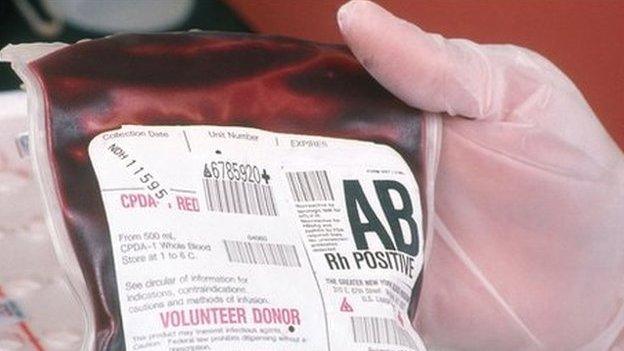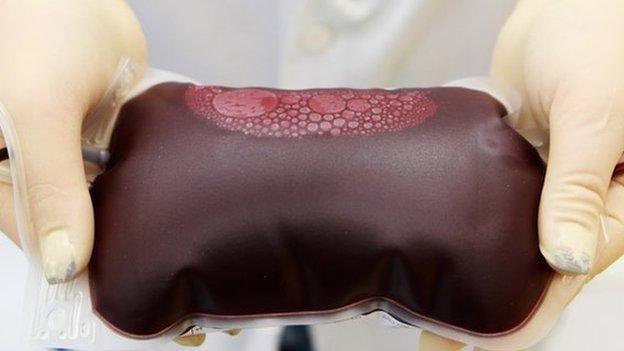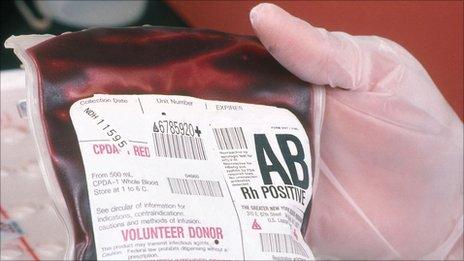Gay blood ruling: NI minister to consider European judgement
- Published

Northern Ireland has retained the ban on gay men donating blood
Northern Ireland's stand-in health minister Simon Hamilton has said he will examine a ruling by Europe's highest court on gay men giving blood.
The European Court of Justice ruled, external that a lifetime ban may be justified in member states if no effective detection techniques exist within the country.
The ECJ said countries must establish if such donors were at high risk of acquiring infectious diseases like HIV.
Simon Hamilton said patient safety was the sole reason for NI keeping its ban.
Restrictions put in place in the UK in the 1980s to prevent the risk of HIV contamination were lifted in 2011 in England, Scotland and Wales.
In Northern Ireland, the Stormont health minister at the time, Edwin Poots, said he was maintaining the ban on the basis of ensuring public safety.
His decision was challenged in the High Court in Belfast in 2013, where a judge said Mr Poots did not have the power to keep the "irrational" ban.
Mr Poots has lodged an appeal in an attempt to have the verdict overturned.
That appeal hearing is scheduled to being in October.
'Paramount importance'
Mr Hamilton, who has taken on some responsibilities of the health portfolio after current minister Jim Wells announced he was resigning, said he would take a detailed look at the European court's ruling.
"Patient safety is of paramount importance - it was for no other reason that the decision was taken," he said.
Simon Hamilton said patient safety was the sole reason for NI keeping its ban
"If those circumstances change as a result of facts and evidence that are presented, I think we would want to take a look at that, but at this moment in time, patient safety has to be the most important thing we have in our minds."
In the UK, a lifetime ban on gay men donating blood was introduced in the early 1980s as a response to the Aids epidemic and the lack of adequate HIV tests.
However, it was lifted in Britain in 2011 after a government panel said the latest medical evidence suggested the ban could no longer be justified.
The government's Advisory Committee on the Safety of Blood, Tissues and Organs said there had been advances in the testing of donated blood which had significantly reduced the chance of errors, and had reduced the size of the "window period" after infection during which it is impossible to detect the virus.
It meant men who have not had sex with another man in the past 12 months were allowed to donate.
The Republic of Ireland is amongst a number of European countries that maintain a lifetime ban on gay men giving blood.
The Irish government is currently considering whether to introduce a one-year deferral instead.
Speaking after Wednesday's judgement, Irish Minister for Health Leo Varadkar said: "Any decision will be guided by medical and scientific evidence and best international practice.
"I do not see this as an equality issue.
"We must always remember that the risk being taken is by those who receive blood, not those who donate it."
- Published29 April 2015

- Published8 January 2015

- Published11 October 2013

- Published8 September 2011
